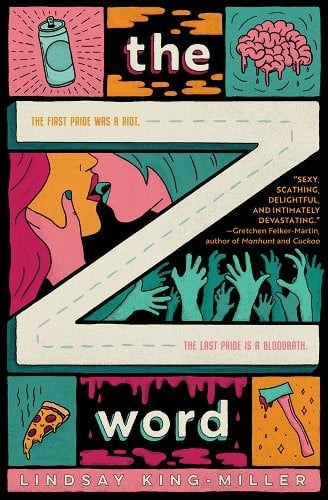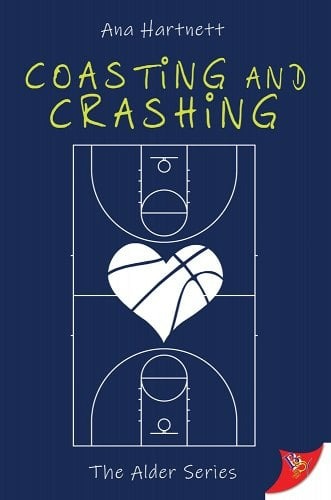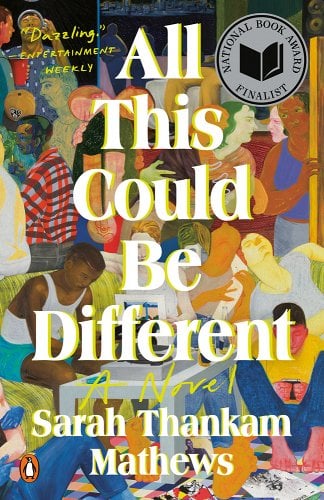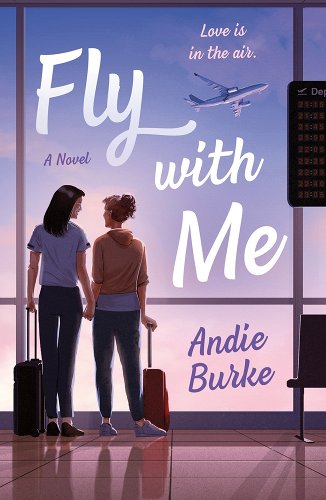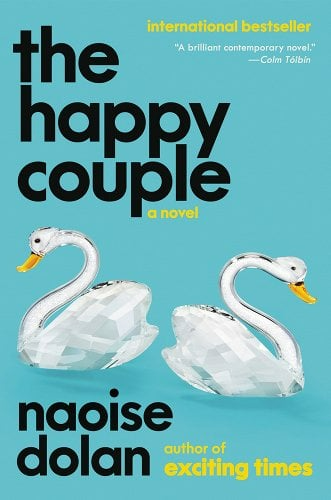Buy this from Bookshop.org to support local bookstores and the Lesbrary! If you like to read about messy lesbians making terrible decisions, this is the book for you. It’s also the perfect set piece for reading in public while sipping an iced lavender latte, though I must admit I was not then approached by aRead More
A Zombie Invasion at Pride Novel Doesn’t Nail the Landing: The Z Word by Lindsay King-Miller
Buy this from Bookshop.org to support local bookstores and the Lesbrary! I was so excited to pick this up. I read Eat Your Heart Out by Dayna Ingram more than 10 years ago (!) and I’ve been searching for a similar fun and gory sapphic zombie adventure ever since. At first, I thought I’d foundRead More
A Bisexual, Palestinian American Coming of Age: You Exist Too Much by Zaina Arafat
Buy this from Bookshop.org to support local bookstores and the Lesbrary! Earlier this month, during a trip to Portland, Oregon to cheer on the UConn Women’s Basketball team in the Sweet 16/Elite 8 (Go Huskies!), my partner and I visited the renowned Powell’s City of Books. We were perusing its gorgeous shelves when You Exist Too Much byRead More
A Slam Dunk Sapphic Romance: Coasting and Crashing by Ana Hartnett
Buy this from Bookshop.org to support local bookstores and the Lesbrary! With March Madness continuing into April, I decided to start my month with Ana Hartnett’s Coasting and Crashing, the third book in her sapphic contemporary romance series set at the fictional Alder University. This time, the story revolved around players on the university’s basketball team. Read More
A New Take On the 20-Something F*ckup Novel: All This Could Be Different by Sarah Thankam Mathews
Buy this from Bookshop.org to support local bookstores and the Lesbrary! I have heard only great things about this book since it came out in 2022, but I somehow didn’t actually pick it up until my queer book club chose it for this month’s pick. I vaguely remembered downloading an ARC on my ereader, soRead More
A Sapphic Romance That Soars: Fly With Me by Andie Burke
Bookshop.org Affiliate Link “They were mirrors in a way. Both of them watching their loved ones suffer. Both unable to help in any meaningful way. Both coping—one with work and the other with a list. Both scared shitless of hurting the other one.“ Content Warnings: Terminal illness, chronic illness, misogyny, toxic relationship, grief, traumatic brainRead More
A Page-Turning Mess of a Queer Love Polygon: The Happy Couple by Naoise Dolan
Buy this on Bookshop.org to support local bookstores and the Lesbrary! If you’re looking for something fun, marathonable, the right amount of messy, and full of queer love polygon drama, then look no further than The Happy Couple. I listened to this as an audiobook (a short and snappy 5.5 hour experience) and I foundRead More
Sweet, Chaotic Bisexuals: Love at First Set by Jennifer Dugan
Bookshop.org Affiliate Link “Queer chaos trumps moral fortitude, especially when making out is involved.” For Lizzie, working at a gym isn’t just a job; it’s her home. For now, she’s only the check-in girl (and occasionally, the owner’s punching bag), but one day, she could manage her own. When her bestie (and emotional support himbo)Read More
A Fraught, Erotic Fever Dream: Mrs. S by K. Patrick
Bookshop.org Affiliate Link Every so often I read a novel that just has the perfect summer energy about it—and even though I read a review copy of Mrs. S by K. Patrick (Europa Editions, 2023) in the spring, I was thinking of summer the entire time. Perfect for fans of novelists like Emma Cline, Mona Awad, orRead More
Maggie reviews A Scatter of Light by Malinda Lo
Amazon Affiliate Link | Bookshop.org Affiliate Link I was ecstatic when I heard that Malinda Lo was writing a loosely connected follow up to Last Night at the Telegraph Cub because Last Night at the Telegraph Club is a hugely important lesbian coming of age novel set in 1950s San Francisco Chinatown that A) I wish I had hadRead More

